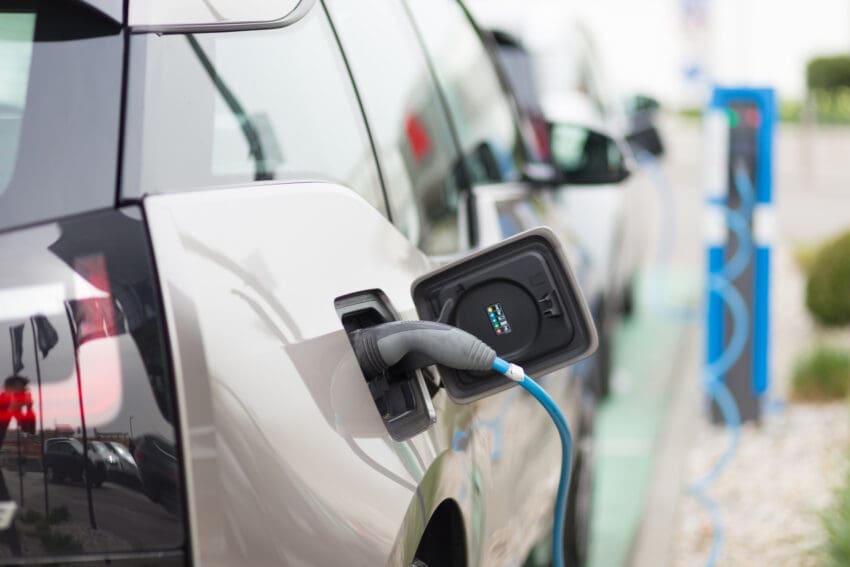
Industry reaction: Electric car owners to pay road tax from 2025
Electric car drivers will have to start paying road tax from April 2025, the Chancellor has announced.
As part of his Autumn Statement, Chancellor Jeremy Hunt said the move was designed to make the motoring tax system “fairer” but the taxt for electric vehicles will still remain cheaper than traditionally fuelled vehicles.
Mr Hunt said: “Because the OBR (Office for Budget Responsibility) forecasts half of all new vehicles will be electric by 2025, to make our motoring tax system fairer I’ve decided that from then, electric vehicles will no longer be exempt from vehicle excise duty.”
Industry reaction
RAC head of policy Nicholas Lyes
said: “After many years of paying no car tax at all, it’s probably fair the Government gets owners of electric vehicles to start contributing to the upkeep of major roads from 2025. While vehicle excise duty rates are unlikely to be a defining reason for vehicle choice, we believe a first year zero-VED rate benefit should have been retained as a partial incentive. But we don’t expect this tax change to have much of an effect on dampening the demand for electric vehicles given the many other cost benefits of running one.
“The fact that company car tax increases on EVs will be kept low should also keep giving fleets the confidence to go electric which is vital for increasing the overall number of EVs on our roads.”
Joel Teague, CEO of electric vehicle community charging app Co-Charger, commented: “I don’t think any EV driver expected a free ride for long; roads have to be paid for and we now know that most people want an EV so you can easily argue that the incentive has done its job.
“I just hope that when it comes to the often-mentioned ‘financial hole’ left by the lack of road tax and fuel tax, they remember the £20 to £30bn the UK tax payer spends right now on fossil fuel subsidies and the health and social impacts of fossil fuel pollution. The sums almost balance each other out, and I know which scenario I prefer: clean air, sustainable transport and good finances.”
Toby Kernon, CEO of vehicle subscription software company Wagonex, added: “The implementation of an electric vehicle (EV) road tax to fill a shortfall in budgets is a significant ‘own goal’ by the government. The UK has specific, ambitious targets to reach net zero, which we are already struggling to meet, so to start taxing EVs will only add to this burden, and more worryingly, could be a sign of things to come.
“With the sale of new petrol and diesel cars ending by 2030, EVs and hybrid cars are the future of motoring. Ownership of EVs across the UK has increased exponentially in recent years and there are now more than one million EVs on the roads. While they’re often more expensive to buy than many diesel or petrol cars, the running costs are generally lower. So, adding tax to these vehicles could be a deterrent to future growth.
“However, if increased running costs are a concern for UK motorists, one alternative way to own a car is a subscription model which provides a way for UK drivers to trial an electric car on a short-term basis. This way, drivers can also minimise additional costs of owning a car such as insurance, repairs, maintenance – and tax increases – as they’re all included in the monthly fee.”
Ben Nelmes, CEO at New AutoMotive, commented: “The Chancellor’s announcement that vehicle excise duty (VED) will be introduced for electric vehicles from 2025 is both pragmatic and practical. Electric cars use British roads, and should make a contribution to road tax. However, it is important that VED is applied to electric vehicles in a sensible way.”
“The idea that ‘the more you pollute, the more you pay’ has been central to the British road tax system since 2001. This must continue – it is crucial that no polluting diesel or petrol vehicles pay less than the lowest rate of VED applicable to EVs.”
“If this happens, it risks creating a perverse tax incentive that could push motorists towards buying older, polluting petrol and diesel cars instead of electric models. This would undermine the hard-won momentum the UK’s transition to EVs has built over the last 2-3 years.”
“Additionally, it is essential that the rate of road tax applied to EVs is initially relatively low. There is scope to increase the rate of VED on electric cars over time, as they become more common on British roads. But applying too high a rate of road tax at this time could deter motorists from making the switch, and stunt the growth in registrations of new EVs.”